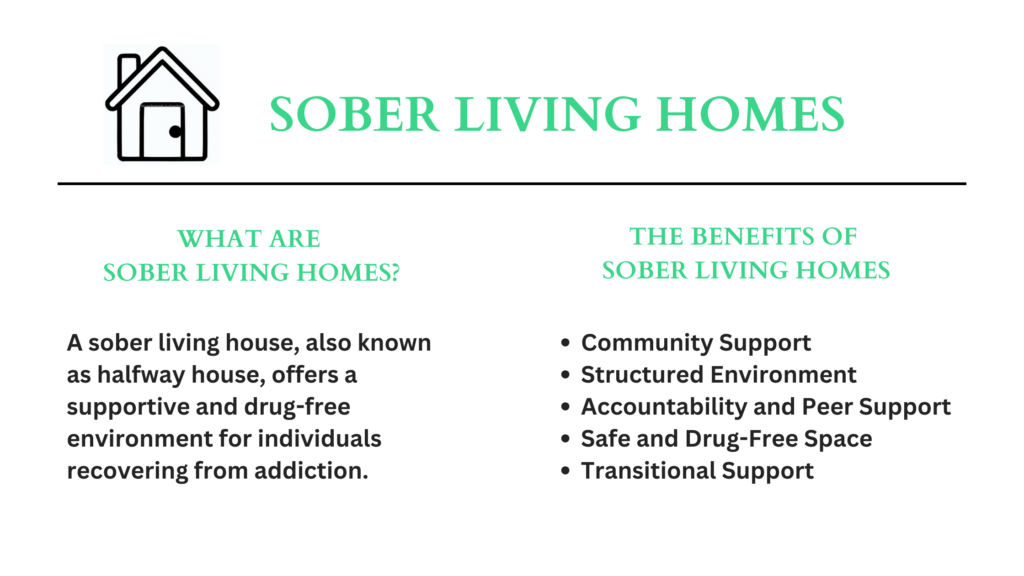Are you or a loved one seeking a safe and supportive environment to continue your recovery from substance abuse? Choosing the right sober living house is a critical step towards maintaining sobriety and building a solid foundation for your future. But with so many options out there, how do you find the perfect fit?
This blog equips you with essential questions to ask before choosing a sober living house, ensuring you find the ideal fit that aligns with your individual needs and goals. From the overall structure and rules to the support services and community atmosphere, these questions will help you assess if a particular facility aligns with your needs and goals.
Our expert advice will assist you in distinguishing between reputable sober living houses and those that may not meet your expectations. We’ll also explore the importance of examining the staff qualifications and track record of success, ensuring you receive the level of care you deserve. By asking the right questions and doing your due diligence, you can make an informed decision about the sober living house that will best support your continued recovery journey. Stick with us as we uncover the keys to finding the perfect fit.

Benefits of Living in a Sober Living House
Emerging from the challenges of addiction is a journey of incredible strength and resilience. While seeking treatment is a crucial step, the path to lasting recovery doesn’t end there. For many, stepping into a sober living house provides the supportive environment and resources needed to rebuild a stable and fulfilling life.
But what are the specific benefits of living in a sober living house? Here are some key advantages that can make all the difference on your recovery journey:

1. Community Support:
- Sober living houses foster a supportive community where residents, united by common goals, share the journey to recovery. The solidarity among individuals on similar paths creates an uplifting atmosphere, fortifying their commitment to overcoming challenges.
2. Structured Environment:
- These residences provide a structured living environment, complete with rules and guidelines. This framework contributes to stability, a crucial element often lacking during the early stages of recovery. The structured setting helps individuals establish routines and cultivate healthy habits that promote long-term well-being.
3. Accountability and Peer Support:
- Residents are held accountable for their actions within the supportive environment of a sober living house. Peer support plays a vital role in this setting, fostering camaraderie and shared experiences. The house becomes a network of understanding and encouragement, reinforcing the individual’s dedication to their recovery journey.
4. Safe and Drug-Free Space:
- Sober living houses create a secure and drug-free living space, providing a sanctuary away from the triggers and temptations that might be present in other environments. This ensures that residents can focus on their recovery without the interference of external influences that may hinder progress.
5. Transitional Support:
- For individuals transitioning from rehabilitation programs, sober living houses serve as a crucial intermediate step. Acting as a bridge between intensive treatment and independent living, these houses offer ongoing support, guidance, and a structured environment to facilitate a smoother transition into a sober and independent lifestyle.
Living in a sober living house goes beyond providing a roof over one’s head; it offers a transformative experience, equipping individuals with the tools and support needed for a successful recovery journey.
Exploring Your Retreat: Essential Questions to Ask Before Choosing a Sober Living House
Choosing a sober living residence is a pivotal stride in your journey to recovery. It stands as your refuge, your pillar of support, and a launching pad for reconstructing your life. Yet, confronted with numerous options, the task of finding the right one may seem daunting. This is where these indispensable inquiries prove invaluable:
Organizational Structure and Regulations:
- Fundamental Philosophy: What principles guide their approach to recovery? Does this approach align harmoniously with your values and beliefs?
- Rules and Anticipations: What are the designated curfews? How is substance use and visitation handled? Does the structure promote a supportive or restrictive environment?
- Compatibility of Residents: How do they evaluate potential residents? Will you find comfort and understanding within the community?
Supportive Services:
- Therapy and Counseling: What varieties of individual and group therapy do they offer? Are there tailored programs to address your specific needs?
- Relapse Prevention and Education: How do they furnish residents with skills to evade relapse and manage triggers?
- Life Skills Development: Are there workshops or assistance available for budgeting, job seeking, or conflict resolution?
Community Atmosphere:
- Demographics of Residents: What is the age range, gender distribution, and background diversity? Will you feel at ease connecting with fellow residents?
- Community Activities and Events: How do they encourage connections and cultivate a sense of belonging? Are there opportunities for shared hobbies and interests?
- Qualifications and Experience of Staff: Are the staff members equipped to support individuals in recovery? Do they boast a proven track record of success?
Financial Aspects and Practicalities:
- Costs and Payment Options: Is the rent and fee structure within your financial means? Are there provisions for scholarships or financial aid programs?
- Location and Transportation: Is the residence situated in a secure and convenient location? Can you easily access public transportation or community resources?
- House Rules and Amenities: Are there shared kitchens and bathrooms? What are the expectations regarding cleaning and maintenance?
Beyond the Inquiries:
- Take a Tour: Familiarize yourself with the facilities, meet the staff, and gauge the overall atmosphere.
- Converse with Residents: Seek insights from current residents about their experiences and request honest feedback.
- Trust Your Instincts: Opt for a residence that exudes comfort, safety, and resonance with your recovery objectives.
How can you ensure you’re ready for life in recovery housing?
Preparing for life in recovery housing involves thoughtful consideration of various aspects. Here’s a guide to ensure you are well-prepared for this crucial phase in your recovery journey:
1. Understanding House Guidelines:
- Familiarize yourself with the rules and expectations of the recovery house. This includes adherence to curfews, attendance at house meetings, and compliance with substance use policies.
2. Financial Planning:
- Gain clarity on the financial aspects, such as rent and additional fees. Develop a budget and explore available payment options to ensure financial stability during your stay.
3. Exploring Support Services:
- Investigate the support services offered within the recovery house. This may encompass access to counseling, therapy sessions, support groups, and other resources vital for your ongoing recovery.
4. Community Dynamics:
- Gain insight into the community dynamics. Understand the demographic makeup, age range, gender distribution, and other characteristics of fellow residents to anticipate the social environment.
5. Amenities and Facilities:
- Inquire about the amenities and facilities provided in the recovery house. Understand the shared spaces, kitchen and bathroom usage, and expectations regarding cleanliness and maintenance.
6. Location and Accessibility:
- Evaluate the location’s safety and convenience. Check for accessibility to public transportation and nearby community resources to ensure ease of daily living.
7. Length of Stay and Progression:
- Seek information on the recommended length of stay and inquire about the house’s approach to monitoring residents’ progress. Understand any plans for transitioning to independent living.
8. Relapse Prevention Strategies:
- Familiarize yourself with the house’s strategies for preventing relapse. Learn about the support mechanisms in place to help residents avoid triggers and maintain their recovery.
9. Communication and Conflict Resolution:
- Understand the communication channels within the house and inquire about conflict resolution processes. Effective communication and conflict resolution contribute to a harmonious living environment.
10. Peer Support Dynamics:
- Explore the level of peer support within the recovery house. A supportive community can play a pivotal role in enhancing your recovery experience.
11. Safety Measures:
- Inquire about safety measures implemented in the house. This includes emergency protocols, security measures, and precautions taken to ensure residents’ well-being.
12. Personal Responsibilities:
- Understand your responsibilities as a resident. This may involve participation in chores, engagement in house meetings, and adherence to established rules.
13. Orientation and Tours:
- Participate in any orientation sessions offered by the recovery house. Take a tour to acquaint yourself with the facilities, meet staff members, and connect with fellow residents.
14. Self-Reflection and Commitment:
- Reflect on your commitment to recovery. Ensure you are emotionally and mentally prepared for this transition, ready to actively contribute to the recovery house community.
By addressing these considerations, you can proactively prepare for the challenges and opportunities that come with residing in recovery housing. This thorough preparation sets the stage for a successful and fulfilling life in sustained recovery.
The Bottom Line
In conclusion, the process of choosing a sober living house is a critical phase in the recovery journey, requiring careful consideration and informed decision-making. By asking key questions about accreditation, staff qualifications, house rules, support services, and the overall approach to recovery, individuals can pave the way for a more successful and sustainable recovery experience.
By posing specific questions related to accreditation, staff qualifications, house rules, support services, and the overall approach to recovery, individuals embark on a journey of self-discovery within the realm of sober living. This proactive and personalized approach is akin to sculpting a recovery narrative that seamlessly weaves into the fabric of their distinctive circumstances.
Incorporating Personalization into Inquiries:
1. Is the Place Accredited?
Special Question: “How does the place’s accreditation match up with what I need to get better? Are there special things they do that could help me with my problems?”
2. Who Works There?
Special Question: “Since I’ve had some troubles, how do the people who work there help folks like me? Can you share some stories about how they’ve helped others like me before?”
3. What Are the Rules?
Special Question: “Sometimes, certain things can bother me. Are the rules flexible enough to help with that?? Can they change things a bit to help me out?”
4. Are There Extra Help?
Special Question: “How do the things they do there help people who’ve had problems like mine? Are there extra things they can do to help me get past my issues?”
5. How Do They Help You Get Better?
Special Question: “Thinking about what I like and what I’ve been through, how do their ways of helping fit with what I want for myself? Are there different ways they can help me?”
Why These Questions Matter:
In this journey to feeling better, the special questions you ask aren’t just about picking a place to stay. They’re like building blocks for creating a safe space that connects with your story. By asking questions that matter to you, you’re not just finding a place; you’re making sure it’s the right place—one where you can truly make your journey to feeling better in a way that’s just for you.










